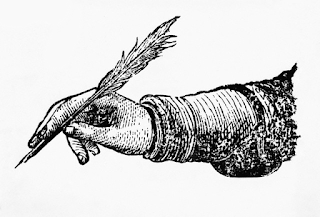Remember, before 1918, the default in Europe always was monarchy. Republics were practically the freaks. France was on by accident as the imbecilic Comte de Chambord, Henri V, declined the offer of the throne over a row about the tricolour. Otherwise it would have had a king in 1916. Portugal was a republic since 1910 and there was strong support for re-instating the monarchy. Switzerland was . . . well, Switzerland, and nobody wanted to be Switzerland.
Russia was only a republic from 1917.
So being a republic in 1916 was the oddball choice. Being a monarchy was seen as logical. Norway had voted in a referendum to become a monarchy over a republic. There is little doubt also that very few Irish people were republicans. Most were naturally monarchists. Royal visits, where of the British royals or international royals, drew mass crowds.
So the question isn't "why would they become monarchy?" but why in 1916 would they become a republic? The answer is - as a stop-gap before they offered the throne to someone. They never actually described Pearse as 'president' in the Proclamation, just a different document. Indeed Tom Clarke, according to his widow, believed He was the president, not Pearse.
In 1917 Sinn Féin almost split on the issue of a monarchy versus a republic. They had to hold two ard fheiseanna to find a compromise. The compromise was not, as people presume, to have a republic, but to have an interim republic while holding a referendum on whether to become a republic or a monarchy. Most expected the vote would go for a monarchy - so it was specified that no British royal could be offered the throne.
The reason for Joachim I suspect was simple - timing. He had married in the weeks before the rising. The papers had extensive coverage. So he was on everybody's lips. In addition, he had no English - so could learn Irish and have an Irish court. Plus as he was just married he had no children, so his first son would be an Irish prince, born and reared in Ireland.
We make the mistake of looking back from a different world where republics are the default and think "why on earth would they become a monarchy?" But in 1916 being a monarchy was normal, natural and in Europe almost universal. Being a republic would have been the odd-ball choice with only a small Irish republican fringe attached to the idea. To borrow Yeats, everything changed, changed utterly in 1917 and 1918 when the Emperors of Russia, Germany and Austria fell, as did the crowned heads across Germany. That changed how republics came to be seen. From 1918 they were all the fashion. Before 1918 they were bizarre oddities - an accident in France, a potentially temporary one in Portugal and that utter oddball Switzerland.
Russia was only a republic from 1917.
So being a republic in 1916 was the oddball choice. Being a monarchy was seen as logical. Norway had voted in a referendum to become a monarchy over a republic. There is little doubt also that very few Irish people were republicans. Most were naturally monarchists. Royal visits, where of the British royals or international royals, drew mass crowds.
So the question isn't "why would they become monarchy?" but why in 1916 would they become a republic? The answer is - as a stop-gap before they offered the throne to someone. They never actually described Pearse as 'president' in the Proclamation, just a different document. Indeed Tom Clarke, according to his widow, believed He was the president, not Pearse.
In 1917 Sinn Féin almost split on the issue of a monarchy versus a republic. They had to hold two ard fheiseanna to find a compromise. The compromise was not, as people presume, to have a republic, but to have an interim republic while holding a referendum on whether to become a republic or a monarchy. Most expected the vote would go for a monarchy - so it was specified that no British royal could be offered the throne.
The reason for Joachim I suspect was simple - timing. He had married in the weeks before the rising. The papers had extensive coverage. So he was on everybody's lips. In addition, he had no English - so could learn Irish and have an Irish court. Plus as he was just married he had no children, so his first son would be an Irish prince, born and reared in Ireland.
We make the mistake of looking back from a different world where republics are the default and think "why on earth would they become a monarchy?" But in 1916 being a monarchy was normal, natural and in Europe almost universal. Being a republic would have been the odd-ball choice with only a small Irish republican fringe attached to the idea. To borrow Yeats, everything changed, changed utterly in 1917 and 1918 when the Emperors of Russia, Germany and Austria fell, as did the crowned heads across Germany. That changed how republics came to be seen. From 1918 they were all the fashion. Before 1918 they were bizarre oddities - an accident in France, a potentially temporary one in Portugal and that utter oddball Switzerland.
➽ Jim Duffy is a writer-historian.






No comments